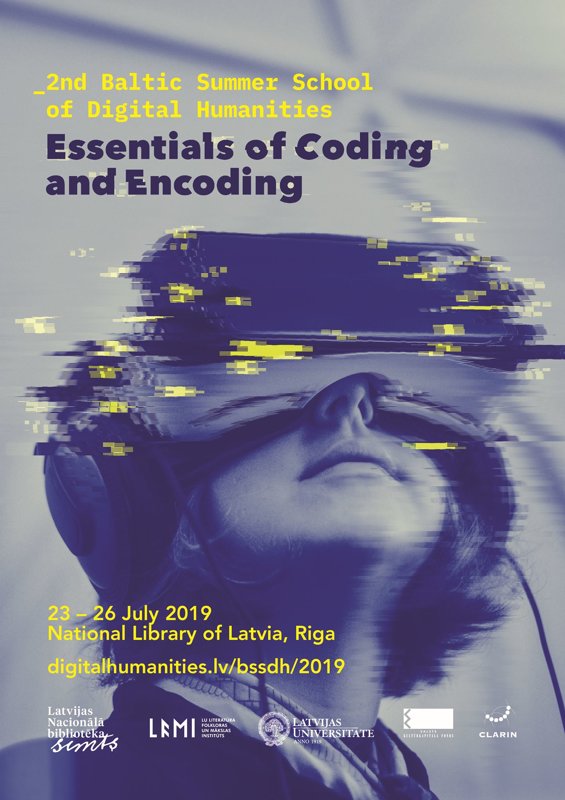Baltic Summer School of Digital Humanities 2019
From July 23 to 26, 2019, at the National Library of Latvia will be held the Second Baltic Summer School of Digital Humanities: Essentials of Coding and Encoding.
The Baltic Summer School of Digital Humanities is an international, intensive continuing-education programme giving researchers, teachers and students in the humanities and social sciences, as well as archival, library and museum professionals the opportunity to acquire a variety of digital research skills – from the skills required to work with digital data to research-result visualisation skills. This year's programme focuses on the basics of programming for researchers in the humanities and social sciences and the encoding or labelling of texts.
The programme includes four practical workshops and five public lectures. Workshops will provide the basics of the Python programming language, text encoding and topic modelling skills, as well as the visualisation of networks on the Palladio platform developed by Stanford University.
The public lecture programme will help students learn how neural machine translation works, what the difference is between reading analogue and digital media, the opportunities offered by the world’s most modern digital newspaper libraries and other current digital-research news. Lectures and workshops will be run by ten lecturers from seven countries (Latvia, Estonia, Lithuania, Finland, Germany, Belgium, Bosnia and Herzegovina).
The Baltic Summer School of Digital Humanities is organised through partnership between the NLL, the University of Latvia Institute of Literature, Folklore and Art and the University of Latvia. The programme is supported by the State Culture Capital Foundation and CLARIN, the Common Language Resources and Technology Infrastructure.
Working language: English
Participation fee: EUR 60.00
Register here: https://reg.lnb.lv/
